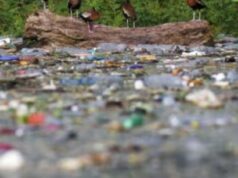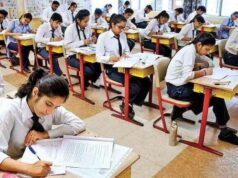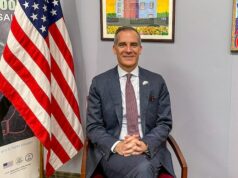
Australia has so far avoided the high numbers of coronavirus casualties reported around the world after closing its borders and imposing strict “social distancing” measures for the past month.
Restaurants, bars and other “non-essential” businesses have closed and public gatherings of more than two people are banned under the threat of fines and even prison, measures that are expected to double the unemployment rate by mid-year.
In response, the daily growth rate of reported new infections has steadied in the low percentage single digits, from about 25 per cent several weeks ago, for a total of about 6,500 infections, including 63 deaths.
Prime Minister Scott Morrison said some measures, like the rule requiring people to stand at least 1.5 metres apart, would likely remain for several months, given there was no guarantee a vaccine would be developed in that time.
“Social distancing is something we should get very used to,” Mr Morrison told radio station 3AW.
“It could be a year, but I’m not speculating about that.”
“Certainly while the virus is prevalent across the world (the 1.5 metre rule) should be a natural instinct.”
Mr Morrison had said on Thursday the wider social distancing measures would be in place for at least another four weeks, while advocating the reopening of schools across the country, citing medical advice that children are a low risk of transmission.
That guidance has been contradicted by several states and territories, which are responsible for schools governance, and brought a public backlash from parents and teachers concerned about exposure to the virus.
“We are considering our options around a rostering system which will have some students go back on a particular day to increase that level of face-to-face,” New South Wales Premier Gladys Berejiklian told reporters on Friday.
“The alternative is that unfortunately students could face up to a year or longer at home and we don’t that’s appropriate,” she added.
For universities which rely on fees from international students, the international border closure could cost them as much as A$19 billion (S$17.22 billion), Victoria University said in an analysis released on Friday, forecasting a further A$38 billion hit to the broader economy.
SURVEILLANCE STATE
Mr Morrison on Friday talked up the controversial rollout of smartphone software that will track a user’s movements, which the government plans to use to detect whether people have been in contact with others who may have been infected.
The mobile phone app has been criticised by civil liberties groups but Mr Morrison declined to rule out making it mandatory, saying the rollout would be voluntary at first so Australians had “the opportunity to get it right.”
“I will be calling on Australians to do it, frankly, as a matter of national service,” he told radio station Triple M.”This would be something they might not normally do in an ordinary time, but this is not an ordinary time. If you download this app, you’ll be helping to save someone’s life.”
The government did not immediately respond to a query about how many people would need to take up the app to make it effective.
Australia’s biggest single source of Covid-19 cases, accounting for around a third of recorded deaths, is a cruise ship, the Ruby Princess, which was allowed to disembark passengers without any health checks in Sydney last month.
Criminal and coronial investigations are underway, and a lawyer appointed to the run a third investigation, for the NSW state government, said on Friday it was already clear that the system for docking cruise ships had failed.
“I don’t think anyone could claim that a system could produce that outcome and be a satisfactory system,” Mr Bret Walker, who is heading up a government inquiry that has the power to demand evidence and compel witnesses, told Australian Broadcasting Corp.
The ship is being held at an industrial port south of Sydney.



